by Mike Gulett –
Classic car dealers and auction companies can play a valuable role in bringing together willing sellers and buyers as long as the seller and buyer are comfortable paying the required fees.
There are cases of collector car dealers buying from auctions and re-selling the cars. There are cases of dealers buying from other dealers and re-selling the cars. And there are cases of dealers selling, or trying to sell, through an auction. Is it an efficient market for there to be two middle men between the individual seller and the final new individual buyer? How about three middle men?
Apollo GT No. 1004, shown here, has had a difficult time finding a new individual owner even with the help of two dealers and an auction company.
I first saw this Apollo for sale at Hyman Ltd. in St. Louis last year. Then it was at the Mecum Auction in Arizona in March 2019 where it was a no sale at a high bid of $130,000.
Now it is for sale at a dealer in Pontiac, Michigan, LBI Limited, for $175,000.
If it did not sell recently at a high bid of $130,000 at a big auction like Mecum why would it sell for $175,000 now? At least the potential buyer would not have to pay the auction commission (10%) from a dealer but the dealer mark up can equal or exceed that amount.
If an end user buyer cannot be found then likely the price is too high. With multiple middle men the price goes up and does not help sell the car and it does not help the market for that model. Maybe the seller should have taken the $130,000 at the Mecum auction?
It is possible this Apollo was on consignment at Hyman, is now on consignment at LBI Limited, is still with the owner who took it to the Mecum auction who is holding out for a price beyond what the market will support now. Or maybe not.
Let us know what you think in the Comments.
Read more about the Apollo GT here.
Photos of Apollo GT No. 1004 are compliments of Mecum Auctions.
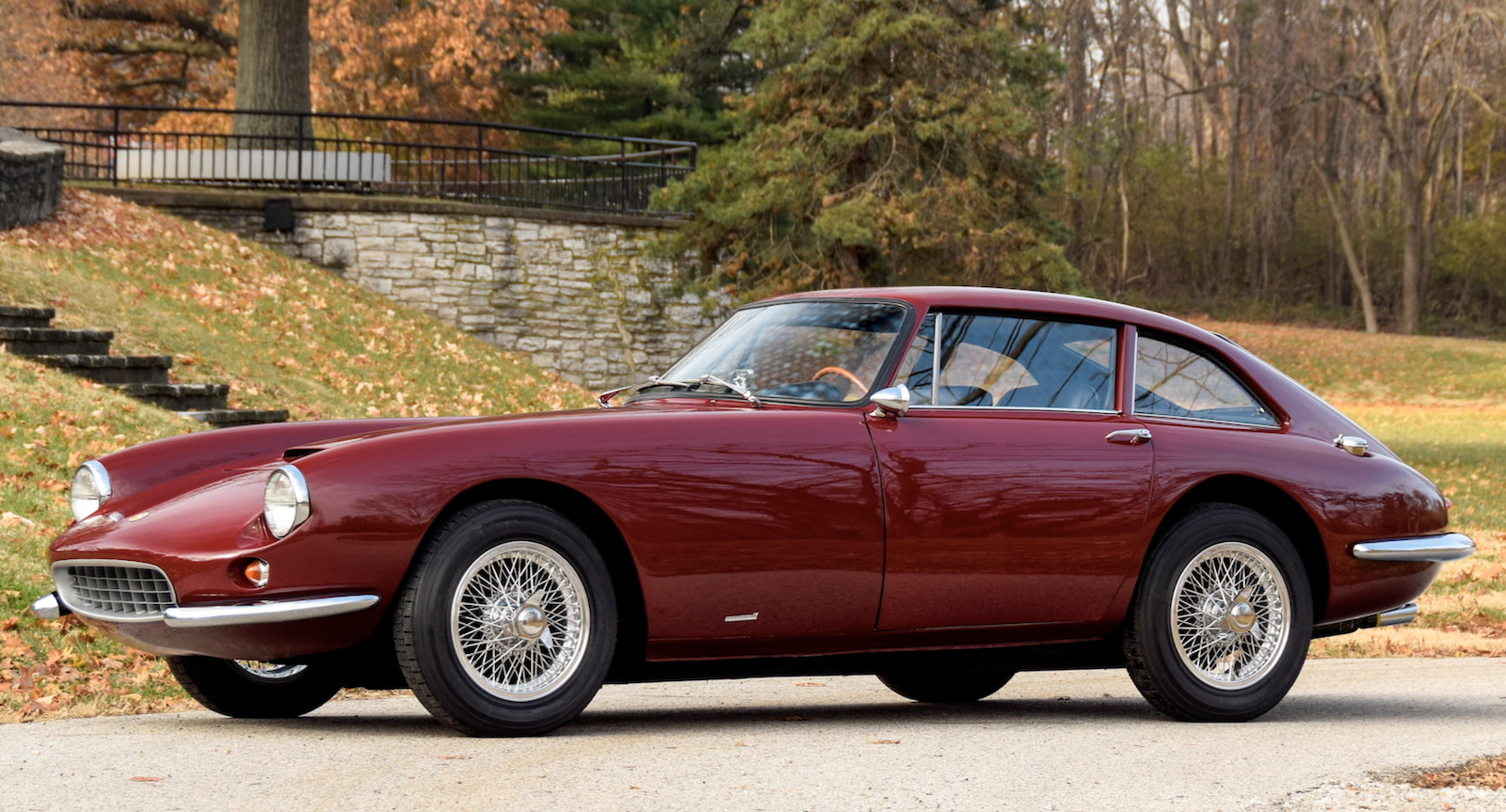
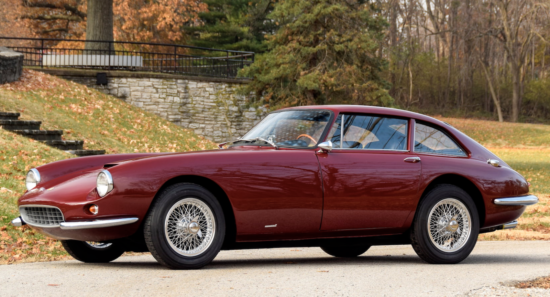
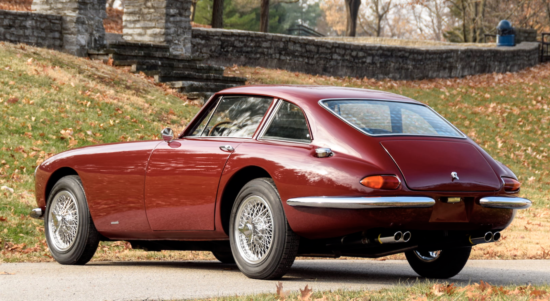
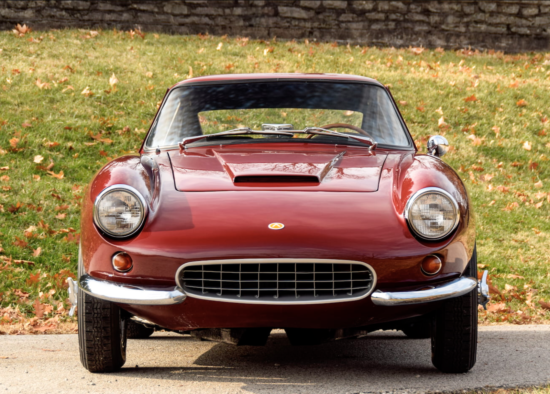
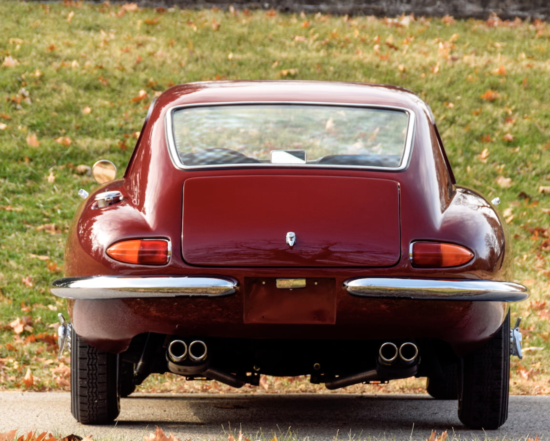
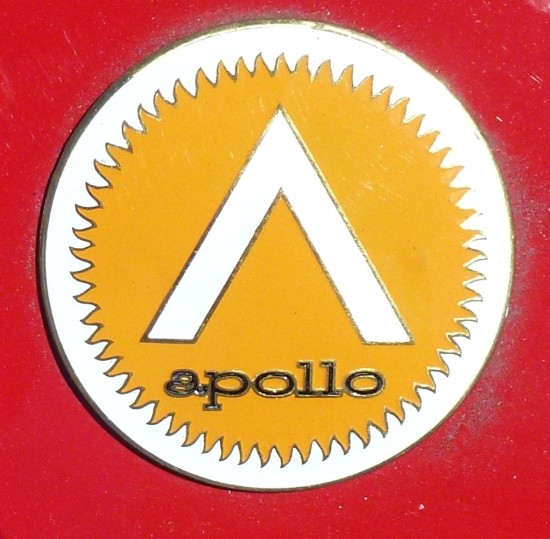


Once again Mike, you bring up a good point. I think the auctions and Classic Car dealer prices help bring attention and general valuation trends to the relative values for individual cars. This in turn, helps establish a baseline expectation for both buyers and sellers. I myself always prefer to deal directly with a private owner when purchasing a car. I feel quite certain that a knowledgable buyer will not only find a nicer car at a better price but that the owner is much more accommodative knowing the future destiny of his vehicle.
Concorso Italiano in 2013 featured the Apollo GT. I think I have photos of Apollo #1004 from that day – here is one:
From all my great car magazines and websites that I look at, I see a very common problem. An owner will buy a car, and then invest a tremendous amount of money restoring it to concours level, and then they will try to sell it at a price that exceeds the collector car market value of the car, to try to recoup the cost of the car and its restoration costs. The value of many cars in the collector car market is often determined by the volume of cars produced, that is why Shelby Cobras and Ferrari GTOs always get high money at auction. However, hundreds of thousands of Mustangs and other muscle cars were produced each year in the mid to late ’60s, most of which have a collector car market value of between $25,000 to $50,000, based on condition. You would not believe how many times I will see a muscle car owner claim he has spent over $100.000 restoring an old muscle car, and then asking for a price close to that amount, while the car will NEVER exceed a collector car market value of $50,000 or $60,000. They are basically asking the new buyer to pay for their foolish mistake!!!! Glenn in the Bronx, NY.
A good argument for buying a car already restored. But then sometimes you find out at some point the owner was told by the painter “I can’t get the exact shade you wanted to match the original paint shade but I got one close,” and then it loses value for the purist. Then you come to the opposite end of the stick where the car is “As Found” not having moved under it”s own power for 20, 30 or 50 years but at least there’s clues to the original paint and interior. Think of how swell that is more the seller–not a dime spent on restoration but he or she still makes a great profit. But that only occurs in rare models with a documented pedigree, not too many owners, and factory invoices to show it was delivered with the paint, upholstery, engine, gearbox, etc. you see before you.
Muscle cars are tricky because, in most cases, they started out with the same chassis and body as the mass produced ones which makes it easier for a con man to conjure up a fake. Not so easy in cars like the Ferrari 275 GTB Competitizione where the entire body is different than the regular 275GTB. It would probably cost half a million to make a fake one.
Mike, I understand your concern that dealers are the catalyst for accelerating the value. Obviously, they do take advantage of a hot market and attempt to profit as much as they can. I’ve seen dealer buy a car at an auction for $34k and then sell it to another dealer on their way out of the auction for just a $2k dollars profit. I sold a Maserati to a dealer at Concorso for $74k who in turn sold it to another dealer who finally sold it to the end user for $90k. That all happened in less than 4 weeks during the hot market of 2014. Had the private buyer purchased the Maserati from me he would have had his car for about 20% less than what he paid. Both dealers obviously knew that there was some meat left on the bone and took advantage. I don’t fault them for what they do, I just blame them for “hijacking” good/fair deals and maximizing their resale values.
Dear Mike,
I agree with many of the answers above but an additional hint at the current situation is the following: as the customer base for classic car is getting bigger, the market is still “atomized”, spread with a great amount of different channels, events, auctions, restorers, so called classic car professionals and so on… Plus, our classic cars have travelled the globe over their existence and sell/purchase channels are very different from a country to another making it even more difficult to establish an heterogenous picture. In such an anarchy, like the street grass, some dealers grow their own business between the big houses (established auction houses, renown restorers, certified consultants, “polo Storico” or “Classiche” programs by manufacturers). such dealers, classic cars “flippers”, tend to occupy the empty space. Being optimist, I think it is a symptom of the growth of the classic car enthusiasts population and the fact that the market will regulate itself, slowly, by getting access to established rules and certified instruments for evaluation and transactions. This Apollo is beautiful and deserves the right owner, the one willing to pour some extra bucks to bring it in his/her collection!
Although there is some signs that the youngins comin’ up don’t like cars, I think there’s big potential for more classic car customers in markets not developed yet; emerging groups of multi-millionaires in the silicon valleys of America who, on their way up the ladder, were too busy to pay attention to cars but who now want to celebrate their success. Sometimes it takes a stirring movie to awaken them to the excitement of cars which is why I think if the $100 million dollar film Ford v. Ferrari is boffo at the box office (debuts Nov. 15th), more nouveau riche will send out the order “Get me one of those Cobras…”
New people in the tent.